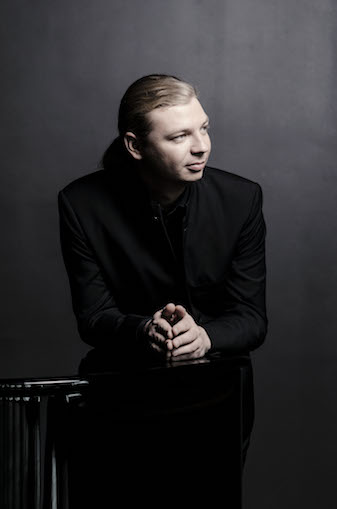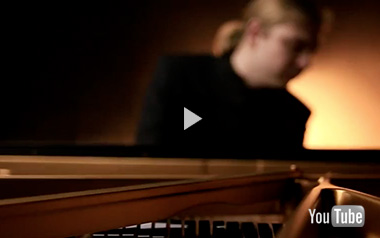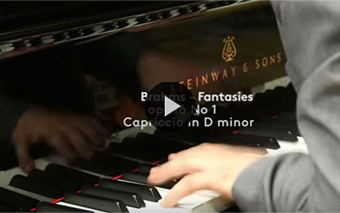Next Concerts
February 19, 2026
Odense
Odense C, Denmark
Ravel: Piano Concerto in G major, M.83
– Pierre Bleuse (conductor)
Venue: Odense Concert Hall, Odense
Mar 7, 2026
Netherlands Philharmonic / European Tour
Amsterdam, Netherlands
Brahms: Piano Concerto No.2 in B-flat major, Op.83
– Lorenzo Viotti (conductor)
Venue: The Concertgebouw, Amsterdam
Reviews
January 20th, 2013
SWR2 Internationale Pianisten in Mainz / Haydn, Franck, Ligeti & Liszt
“The ecstatic last notes of Györgi Ligeti’s etude “L’escalier du Diable” linger for a while until they finally fade away. Denis Kozhukhin, 26, seems content and relaxed and there is no way of telling that just a moment before he drew the audience at the Frankfurter Hof into a whirl of obsessed, dazzling, overlapping runs, harmonies, sounds and tempi.
The Hungarian composer Ligeti loves the complicated in music and the optical illusions in visual art. In the young Russian pianist, who won first prize at the renowned international piano competition “Concours Reine Elisabeth”, Ligeti seems to have posthumously found the ideal interpreter of his compositions.
The highly complex “Etudes pour piano” have as little in common with finger exercises as times tables do with Fermat’s rule. They are a daunting and on occasion acoustically overtaxing accumulation of technical and musical difficulties. Denis Kozhukhin simply breaks them down with perfection and a rarely heard sensitivity for the sound. His expressive way of playing shows his profound understanding of musical structures…
Franz Liszt’s “Etudes d’execution transcendante” were in his time considered to be “unplayable and unenjoyable”. From the “Wilde Jagd” and its punctuated runs or the watercolour-like nuances of “Harmonies du Soir” to the pathetically told story about the page “Mazzeppa”– Kozhukhin is incredibly sharp both in terms of technique and interpretation.
And he certainly managed to commit this to the audience’s memory not least with the encores he gave, one of which was Gluck’s “Plainte d’Orfee”.
Allgemeine Zeitung, January 2013


